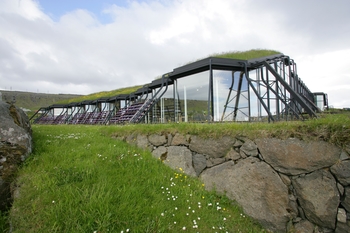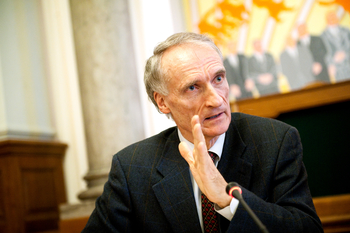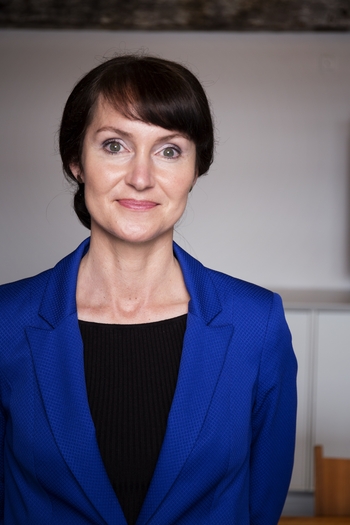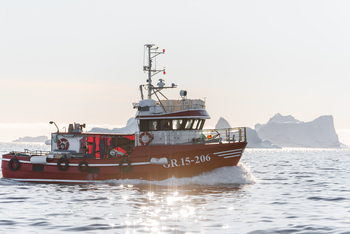Guidelines for the Nordic Council of Ministers co-operation with its western neighbours from 2021 to 2024
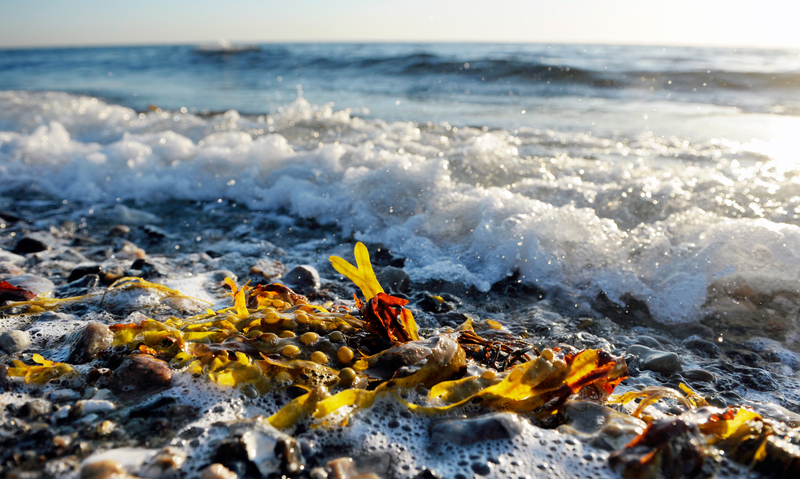
Background to co-operation
The Nordic Council of Ministers’ current co-operation with its western neighbours has grown closer over the past decade. Denmark, Finland, Iceland, Norway, Sweden, the Faroe Islands, Greenland, and Åland share the same challenges and opportunities as regions in Canada, the US, the UK, and Ireland. These shared issues and challenges include sparsely populated areas, large geographical areas, long distances, infrastructure challenges, cold North Atlantic and Arctic climates, and a strong dependence on the sea and maritime resources. These challenges require development based on co-operation. New opportunities and potential threats due to climate change and maritime traffic in the North Atlantic and Arctic are increasing overall interest in the area and demonstrating its strategic importance.
This development requires a deeper understanding and co-operation between the Nordic Region and its western neighbours. An objective of the Nordic Region is to work with its neighbours on common issues, thereby strengthening cohesion between the regions. Consequently, this co-operation must benefit all participating parties. These guidelines are intended to serve as a guidance tool to support the achievement of this objective.
This co-operation is regional and/or multilateral, taking place between the Nordic countries, within the framework of various ministerial councils and Nordic programmes, and with relevant partners in the West. Furthermore, co-operation is intended to be complementary, supporting areas where co-operation creates Nordic synergy and mutual added value.
On 19 June 2019, the Ministers for Nordic Co-operation agreed on a new vision for the Nordic Council of Ministers. Our Vision 2030 was adopted by the prime ministers on 20 August 2019. In order to realise this vision, there are three strategic areas to be prioritised in the work of the Nordic Council of Ministers over the next four years, namely: a green Nordic Region, a competitive Nordic Region, and a socially sustainable Nordic Region.
The Nordic Region shall be the most sustainable and integrated region in the world by 2030. Co-operation in the Nordic Council of Ministers shall serve this purpose and provide the underlying guidelines for co-operation between the Nordic Region and its western neighbours for the period 2021 to 2024.
Guidelines
Growing interest in co-operation with the Nordic Region’s western neighbours has led to the development of these guidelines to provide a framework for co-operation.
The guidelines aim to ensure and achieve:
- Active involvement from at least three of the members of Nordic co-operation (Denmark, Finland, Iceland, Norway, Sweden, Greenland, the Faroe Islands, and Åland).
- Mutual benefit for the Nordic Council of Ministers and western partners.
- Added value for all parties and avoidance of duplication of efforts.
- Incorporation of the Nordic Council of Ministers’ cross-sectoral strategies (i.e., sustainable development, involvement of children and young people, and gender equality).
- Shared perceptions and deeper understanding between the Nordic Region and its western neighbours.
- Consideration for the guidance provided by Our Vision 2030 and the UN SDGs.
At the official level, the Ministers for Nordic Co-operation and the Nordic Committee for Co-operation are responsible for international co-operation beyond the geographical area covered by official Nordic co-operation under the Helsinki Treaty and are therefore responsible for co-operation with the region’s western neighbours.
Other entities, such as other ministerial councils and affiliated Nordic institutions, may be responsible for the actual implementation of projects concerning co-operation with the region’s western neighbours. The ministerial councils may work with different parts of the geographical area covered by these guidelines, depending on the potential for Nordic synergy effects. The guidelines govern the activities of the Nordic Council of Ministers in respect of co-operation and serve as a starting point for developing common objectives and activities.
Priority areas
Broader Nordic co-operation with western neighbours must be based on shared interests, experiences from previous co-operation projects, Nordic and mutual added value, and feedback from discussions with existing and potential partners.
The Nordic Council of Ministers is interested in creating, supporting, and contributing to sustainable development on an overarching level and to Agenda 2030 through specific priorities on the following topics:
- Maritime issues
- Trade and economic development
- Environment, climate, and energy
- Research, innovation, education, and training
- Culture
- Health
- Gender equality
- Involvement of children and young people
Instruments for developing co-operation
Co-operation can be developed and achieved through the use of the following instruments:
- Co-operation with western neighbours.
- Co-operation within and between Nordic institutions and co-operative bodies.
- Relevant programmes operated by the ministerial councils, Nordic institutions, and co-operative bodies.
- Various types of memoranda of understanding.
- Information exchange and comparison of experiences (benchmarking).
- Instruments from external partners, budget lines, and co-operation mechanisms.
The ten existing ministerial councils can develop their co-operation based on their respective priorities. Relevant official representatives (e.g. embassies of the Nordic countries) will also have an important support role in co-operation.
The Nordic regional intergovernmental body NORA (Nordic Atlantic Co-operation) can, in particular, play a role as a consultative and facilitative body together with the Secretariat to the Nordic Council of Ministers, leveraging its expertise related to the North Atlantic region.
NORA may also serve as an implementing organisation, and its function as a consulting body is assessed on a case-by-case basis.
Economic principles
Since 2009, Ministers for Nordic Co-operation have had their own budget for co-operation with the region’s western neighbours, which forms the foundation of this co-operation. This budget should be considered as start-up financing, not operational financing.
Timeframe
These guidelines apply for the period from 2021 to 2024 (calendar year).
Evaluation of the guidelines
Co-operation is evaluated on an ongoing basis. The Ministers for Nordic Co-operation will hold an annual overarching discussion regarding co-operation and progress based on reports about co-operation. Individual initiatives and specific projects will be evaluated on an ongoing basis, and experiences will be referenced to develop ongoing co-operation.
Profiling of co-operation
Communication and profiling must be assessed and implemented for a given project or initiative. Co-operation shall be profiled in accordance with the Nordic Council of Ministers’ profiling and communication strategies.
The Ministers for Nordic Co-operation and other ministerial councils shall help to increase the amount of information about and raise awareness of Nordic co-operation with the region’s western neighbours. This task must be performed in co-operation with official representatives of the Nordic countries, embassies, and relevant official Nordic bodies and institutions. The profiling of co-operation shall be expanded and co-ordinated with relevant partners, who shall be involved in promoting co-operation at all levels to the greatest extent possible.
